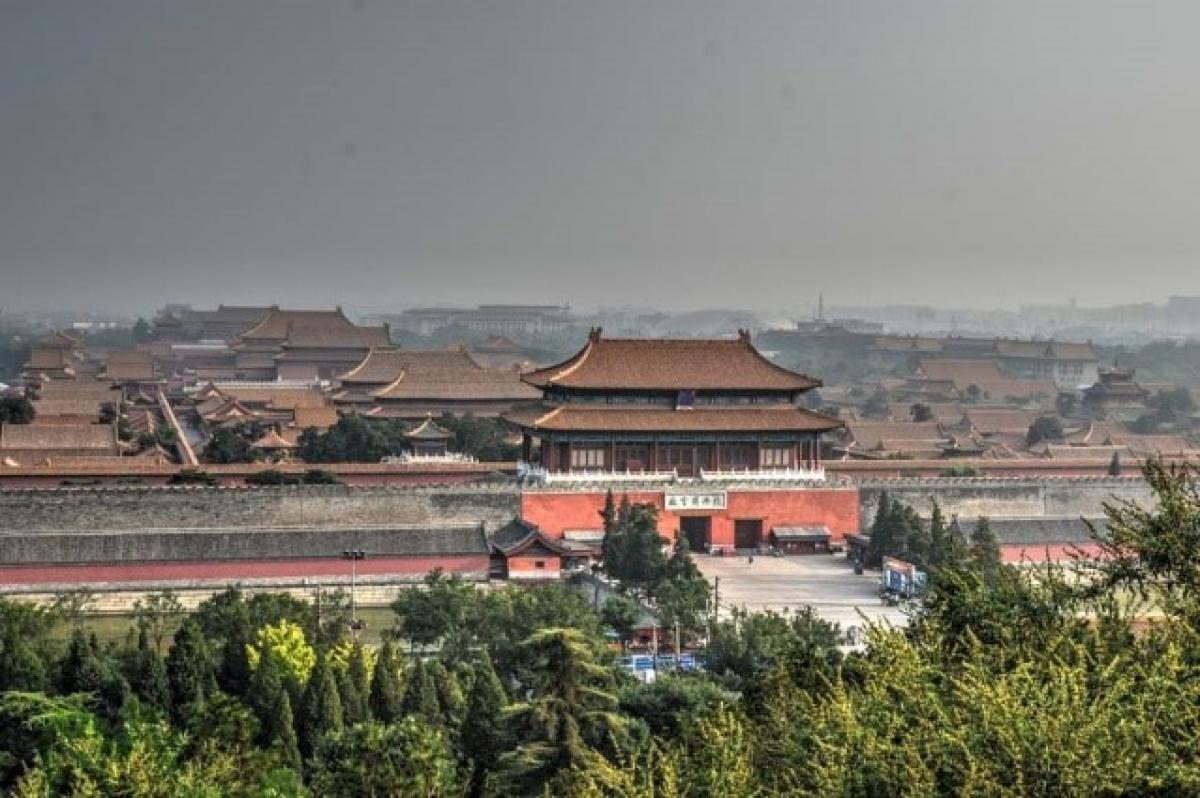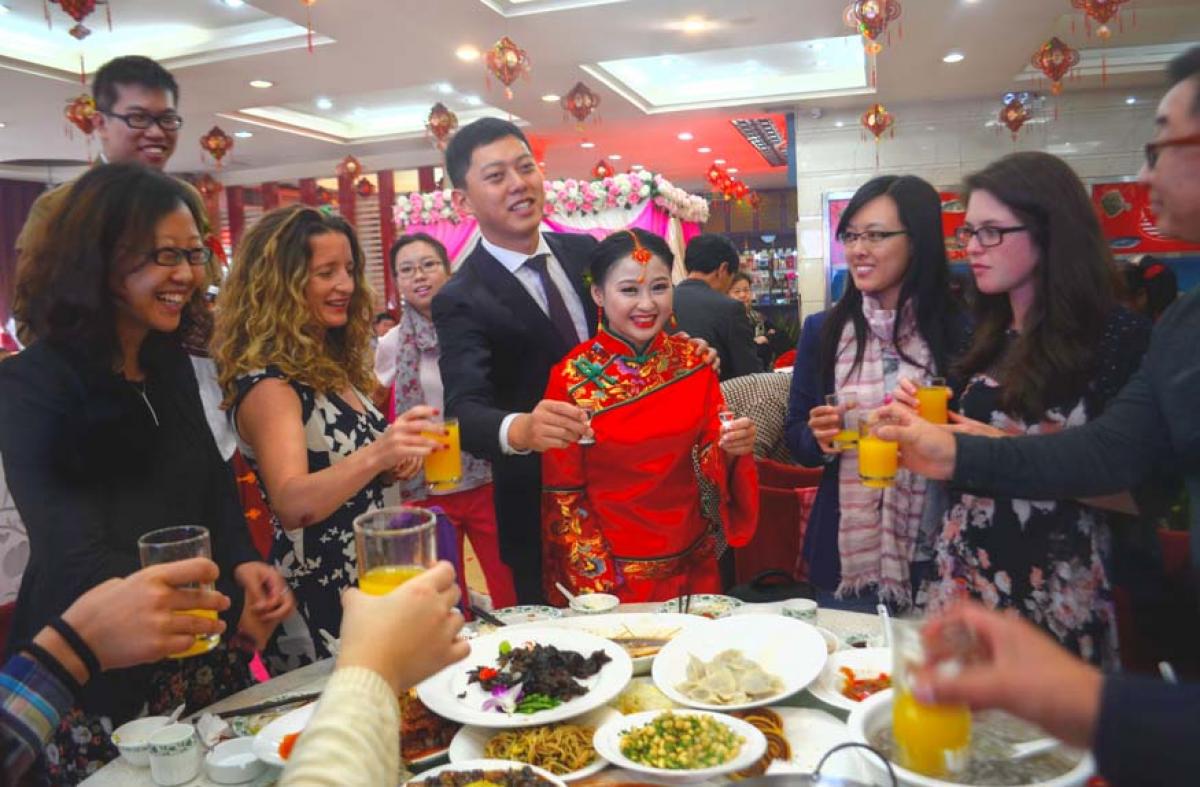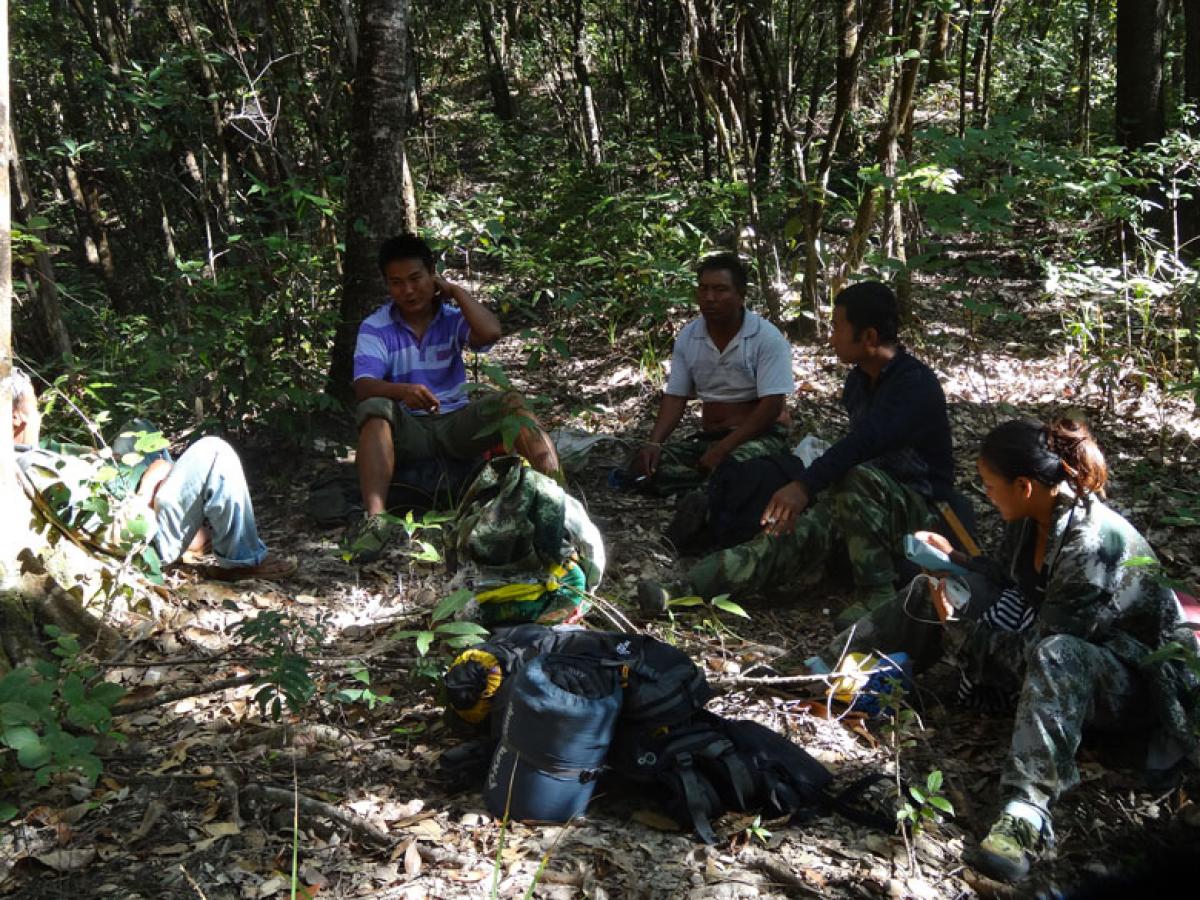Chinese Imperial Sites
Published in People
Being a broken individual is not remedied by any amount of travel alone; although, it does provide a scenic backdrop for healing and transformation. By visiting imperial China, where the royalty becomes reflected in the inner landscape, there is an alchemical transformation that occurs that lasts for some days. I stare out into the long corridor of the Summer Palace and from the intricately painted mythologies on the ceiling, then I can understand something about the leisure of royalty during those times.

In 1885, one of the most controversial times in China’s imperial history, the famous Summer Palace gardens were built by the mysterious Empress Dowager Cixi, who for her 60th birthday decided to use the Qing dynasties Navy funds to build herself a majestic playground. She was the ruler of the Manchu empire for nearly 40 years. I walk the long corridors surrounded by innumerable Chinese visitors. I go to view her bed chambers, her paraphenalia, as well as that of her son, the young Child emperor whom she represented, and also imprisoned for over 10 years. Brick walls covering the doorways, which still stand today. I look to these reflections as if I’m looking into a mirror. In that sense I can move away from acting on a sense of wounding, but finding empowered change. The reflection of the Empress Dowager Cixi reminds me to live with more courage.


Visiting imperial bedchambers was no solace for me. I am still healing from a deep painful loss in my life, one that left me with no resiliency or inner strength. I consider myself personally devastated and weak, even after years of painful realizations and suffering. I have to honor the reality that I am simply a product of my ancestors, and that I’m beautiful no matter how tired or poor I feel I am. I’m reminded by the Chinese tourists who are so quick to rush up to me and take my photograph. One after another want to stand with me and get a photo with me. No one does this to the foreigners who visit where I’m from in America, as it would be considered odd for me to go up to a Chinese person and ask to get their picture with them.
Chinese history only had two female emperors. The rest of the male Emperors enjoyed the Forbidden City, the world’s largest imperial palace, all to themselves in the 9,999 rooms. Remember, 9 was the emperor’s lucky number. Then there was his choice of empresses and concubines, whom the emperors would choose from a young age, often narrowing down the choices of applicants personally choosing the most beautiful. Even the Empress Dowager Cixi began as a 16 year old concubine to the Emperor, subsequently bearing his sons. The emperor was only male surrounded by an entire legion of Eunuch boys who readily volunteered to have their parts removed for a chance to live in the luxury of royalty as a servant. The entire Forbidden city was a playground for debauchery, where the Emperor’s promiscuity and power went unchecked.

The Emperor was considered Heaven and Earth combined, and had a spiritual significance. Yet became out of touch with reality entirely, often never seeing the world outside of the Forbidden City at all. Chairman Mao’s picture hangs on the outside of the gate of the Forbidden City looking over Tiananmen square. He ended that system and formed the People’s Republic of China.
I head to Chairman Mao’s mausoleum. A few Tibetan ladies rush past me, pushing ahead with braided hair and traditional clothing on. There are hoards of all ages of Chinese visitors to the location. Most foreigners feel like elbowing people and pushing the back as hard as they are pushing forwards too. It can be annoying and aggressive to be pushed by the line of people. I manage to keep from becoming aggressive, as much as I’d like to see the effigy. I’m watching the pushers get ahead faster than me. Their pushing is working. Going through the hour long line with hundreds of other pushy rude Chinese people reminds me of the civility of waiting in line. Waiting in line simply doesn’t happen here.

Many people offer white flowers to a larger than life white effigy of Chairman Mao sitting on an armchair. Some people bow with folded hands as if they had entered a Buddhist temple. Entering the memorial space, the glowing face of Chairman Mao is readily apparent where he’s laying embalmed in his coffin, flanked by two guards behind a glass encasement. Looking in to see his face, they’ve preserved it very well. It’s interesting to see his face. His father was a landlord, and Chairman Mao became the ultimate landlord. He father was particularly loved “face,” a term that connotates one’s reputation. Apparently, the young Mao Zhedong would refuse to serve tea to his father and his fellow landlord friends, causing his father to “lose face.” His mother taught the young Mao to share rice with poor people, for which his father thought he would lose money, yet they still snuck away to give bags of rice away. Eventually, he founded the People’s Republic of China in 1949, and went on to drastically change land reform in an attempt to convert the agrarian society to an industrial one, which unfortunately caused a famine of upwards of 40 million people. Many people are conflicted by his devestating policies. Several of the visitors to his mausoleum were crying, offering flowers, and bowing with real sincerity. The flowers are then obviously resold outside for continual offering. In China, white is a color for funerals, not weddings. Even so, there is a saying in China that translates to “We hope Chairman Mao survives,” or roughly, “long live Chairman Mao”. One time a student here was reminding me that on American money is the phrase, “In God we trust.”, and then when I asked if there was a similar saying, he compared with “long live Chairman Mao.” I’ve seen and heard much of this communist sloganeering, and read the Little Red Book during college.
Chairman Mao’s mausoleum is impressive, especially considering the communist revolution that he started to end imperial Chinese rule by a system of feudal emperors. There is another mausoleum in China that rivals that of Chairman Mao’s. The opulent tomb of the Terra Cotta Warriors in Xi’an is the place where the first Emperor, Qin Shihuang (210 B.C), was buried. This was the person who first unified China from the Six Warring States. Since it was discovered in the 1970’s, there actual resting place for the emperor has not yet been opened, and most of the tombs have not been excavated yet. The underground site is surrounded by extensive rivers of poisonous mercury, which prevents most archaeologists from desiring to work in the contaminated area. It’s a monumental task for archaeologists, who want to be as painstakingly careful to preserve the remains.

The magic of hidden treasure is very prominent here, as there’s an entire imperial palace currently being excavated from this time period over eighteen thousand years ago. The terracotta warriors stand in flanks, fully sized, each unique with different facial features. The bronze artifacts come in all shapes and purposes from sculptures of animals to food and water pots. The exhibitions of the majestic creations inlaid with gemstones are now tinted with blues and greens from the aging process. Allowing the web of history to unravel before me as I greet these characters from China’s past. The history is not only unearthed for me to experience visually, but alchemically I am transformed learning about the luxury of times past. The royal artifacts carry forward a cultural memory that then becomes my memory.




